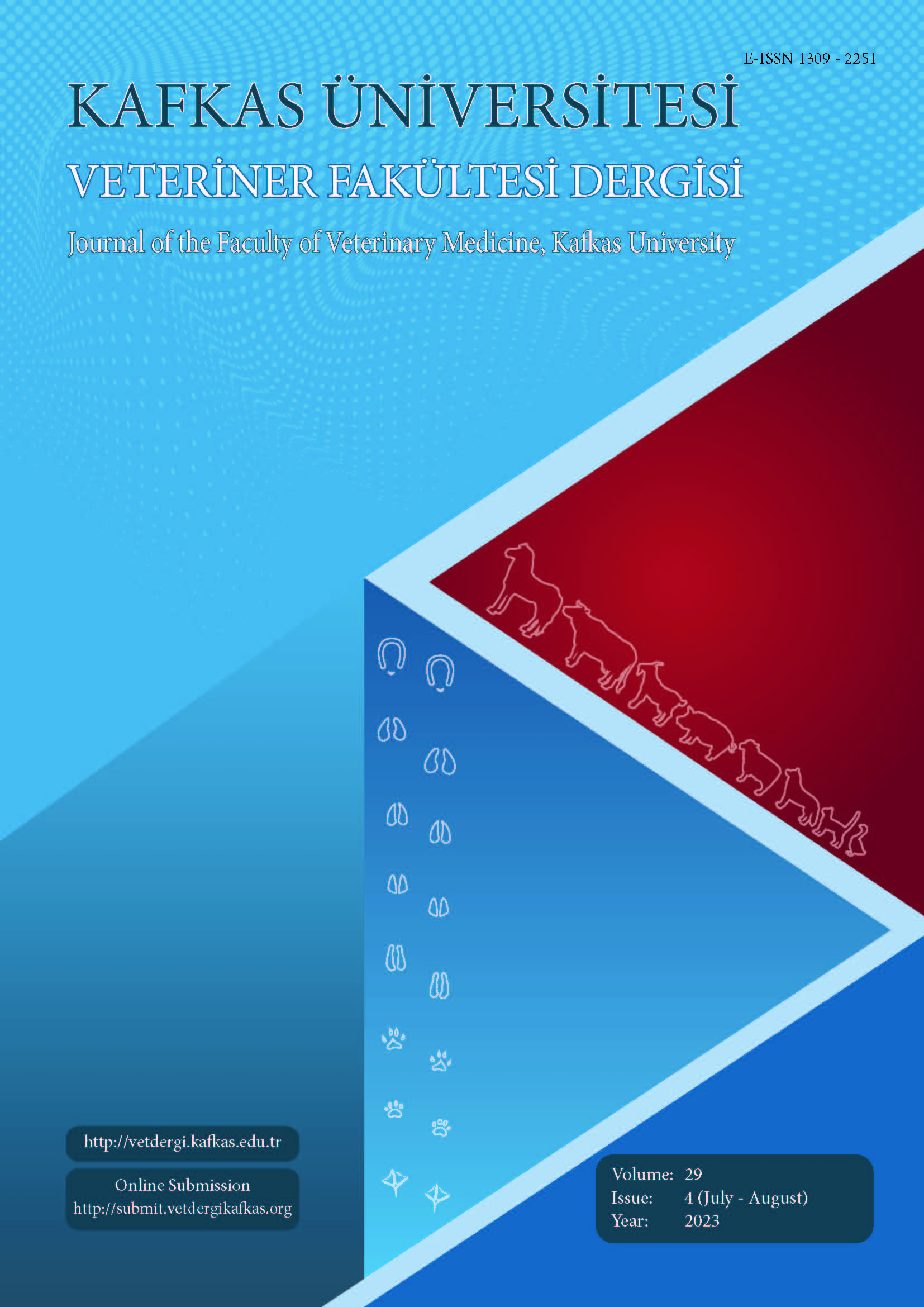
This journal is licensed under a Creative Commons Attribution-NonCommercial 4.0 International License
Kafkas Üniversitesi Veteriner Fakültesi Dergisi
2023 , Vol 29 , Issue 4
Thromboelastographic Evaluation of Coagulation Profile in Dogs with Subclinical and Clinical Ehrlichiosis
1Department of Internal Medicine, Faculty of Veterinary Medicine, Bursa Uludag University, TR-16059 Bursa - TÜRKİYE2Tokyo University of Agriculture & Technology, 3-5-8 Saiwai-Cho, Fuchu, 183-8590, Tokyo, JAPAN
3Department of Animal Medicine and Surgery, Faculty of Veterinary Medicine, Regional Campus of International Excellence “Campus Mare Nostrum”, University of Murcia, 30100, Espinardo, Murcia, SPAIN DOI : 10.9775/kvfd.2023.29395 Canine monocytic ehrlichiosis (CME), a vector-borne disease of worldwide distribution, causes coagulopathy in dogs. Thromboelastography-TEG measures the efficiency of coagulation. However, there is lack of knowledge about TEG evaluation in different stages of CME. Thus, this study aimed to evaluate the coagulation status and viscoelastic properties of blood using TEG parameters in dogs with naturally-occurring CME, and their potential to discriminate between subclinical and clinical forms of the disease. The relationship between TEG parameters and C-reactive protein (CRP) was also investigated. For these purposes, 29 E. canis-seropositive dogs were used (12 subclinical and 17 clinical forms), and 10 healthy dogs as controls. Kaolin-activated TEG was performed in all dogs. Platelets were lower (P<0.01), but CRP was higher (P<0.001) in clinical form than in subclinical form. TEG-reaction (R) and clot-formation times (K) decreased (P<0.01), whereas α-angle and coagulation index (CI) increased (P<0.01) in both forms of CME compared to controls. The magnitude of decreases in R- and K-times and increases in α-angle and CI were higher in dogs with subclinical form compared to clinical form. CRP was correlated negatively (P<0.05) with TEG-Ly30. In conclusion, among TEG parameters, R-time, K-time, α-angle, and CI values may be used to differentiate subclinical form of CME from clinical form. Hypercoagulability is especially frequent in dogs with subclinical CME and may be associated with systemic inflammation. Keywords : Coagulation, C-reactive protein, Dogs, Ehrlichiosis, Thromboelastography










